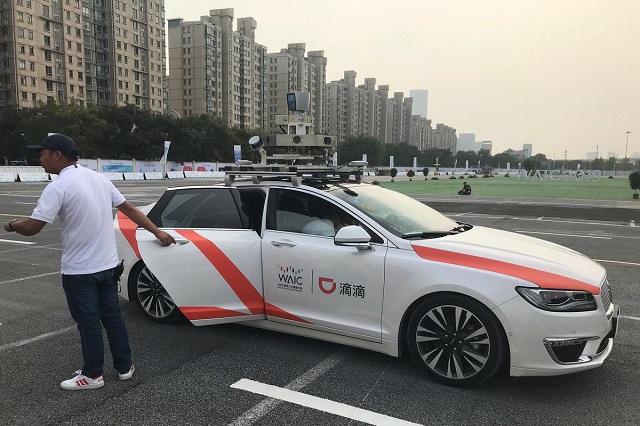
The service will allow passengers who hail a vehicle in the city’s Jiading district via Didi’s app to choose to be picked up by a self-driving car, the firm’s Chief Technology Officer Zhang Bo said at the World Artificial Intelligence Conference.
The cars will still be staffed with a human driver, he said, adding that more than 30 different types of car models will be offered in the pilot service, all equipped with so-called Level-4 autonomous driving capabilities.
All self-driving rides will be free of charge.
Waymo urges US to 'promptly' remove barriers to self-driving cars
Zhang told reporters on Friday that Didi intends to go live with the service in a matter of months, but that it was waiting for some licenses. The firm won permits from the Shanghai government to test its self-driving fleet on Wednesday.
Didi hopes to have the so-called robot axis in three Chinese cities, Beijing, Shanghai and Shenzhen, by 2020 and intends to launch outside the country by the year after, he said.
Didi is also in talks with Toyota, with which it set up a joint venture last month focused on mobility services, on self-driving technology, he said.
He added that he believed transportation technology providers will form a set of “alliances” that provide a combination of a ride-sharing network and an ability to make cars.
“There will be no more than 3 alliances that can provide a real product,” he said.
“Self-driving vehicles will be one of the most important areas in artificial intelligence over the next ten years.”
Ex-Google engineer indicted for stealing self-driving car secrets
Earlier this month, Didi said it had spun-off its autonomous driving unit into an independent company that will focus on research and look to deepen collaboration with automakers, with Zhang as its CEO.
Tech giants such as China’s Baidu and Alphabet’s Google Waymo as well as traditional carmakers have been racing to put full commercial self-driving vehicles on the road.
However, some have stumbled due to the difficulty and expense of developing self-driving cars capable of anticipating and responding to humans in urban areas.
In December, Waymo began charging passengers to use its driverless vehicles in a roughly 160 km zone in four US suburbs, putting it ahead of US rivals.























COMMENTS
Comments are moderated and generally will be posted if they are on-topic and not abusive.
For more information, please see our Comments FAQ